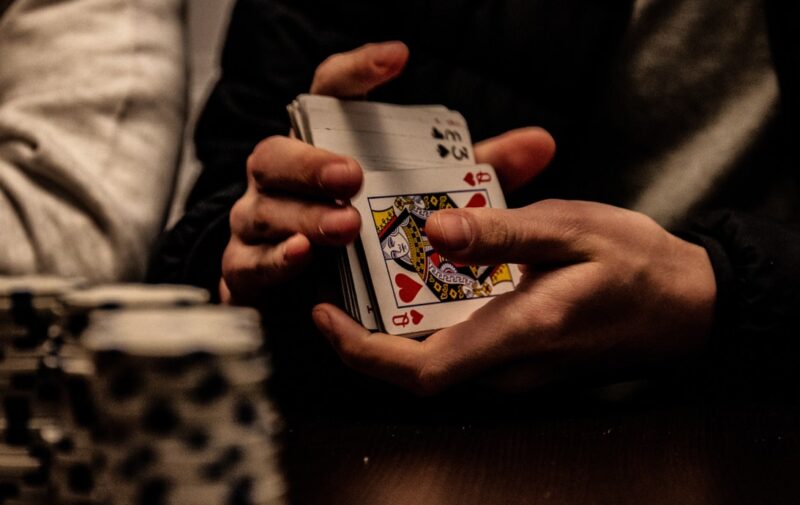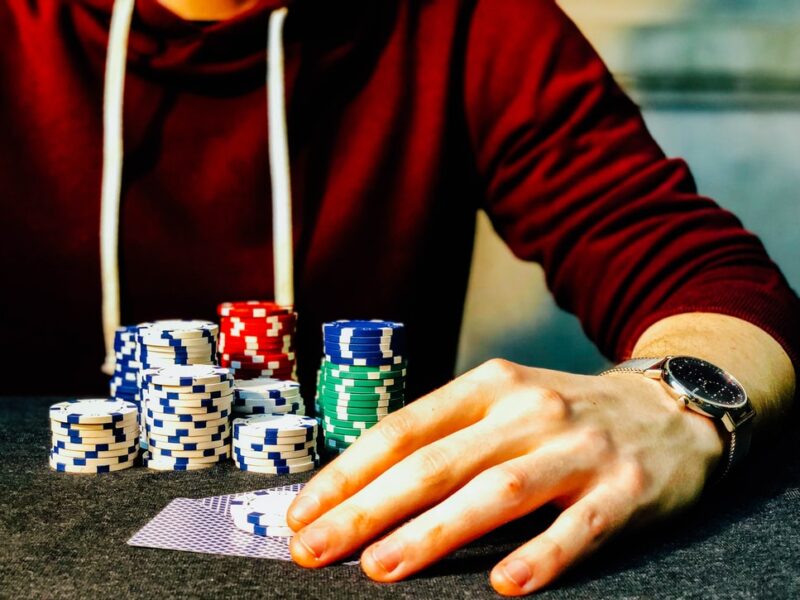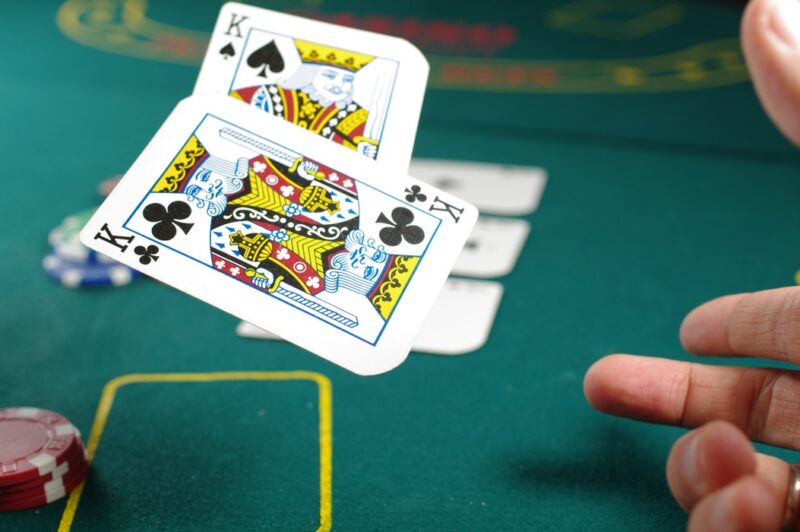Poker is a popular card game of luck, that seems simple to understand, but everyone who tried it, have seen that it’s not that easy to play against the professional around you. But, can you become one of them? In your fantasies, the whole thing may look naive and shiny like in the movies, but real-life poker is first, learning the rules, and then, start betting. Once you understand the basics, it doesn’t mean you already know how to play it. As we said, it’s different than what you see on the TV, and sometimes it takes more time to learn everything, and gain the needed skills, so you can become a professional poker player.
You can practice your skills on a smartphone app and play with virtual money, against other people who like this game. Also, you can do the same with your friends, and you all improve your skills. Here are some tips on how to do that:

-
Understand the game
Don’t join real games if you don’t understand them. Even the most experienced players are still studying every possible aspect, talk to the other players, and learn about some methods they haven’t tried yet. You may think you should only hold to your luck, but in some situations, your understanding and knowledge will save the game, and lead you to win, or losing a small amount of money. You can join some forums, find blogs, Facebook groups, or even websites like pokerlistings.com, and start building up your knowledge, skills, and experience.
-
Know and understand the rules
Every game has rules, and poker is not an exception. Also, there are different types of poker, but no matter that, Texas Hold’em (which is a kind of community card poker) is still the most popular one. Another famous variation is stud poker, which can be played with five or seven cards. The draw poker is the one with five cards, and replacing them faced down. The player who has the best combination wins the game. Probably you will stick to Texas Hold’em and its variants because most of the players are focused on it. Learn the rules, understand them, and then you can try to play one hand, to see how it goes.

-
Fold when you have nothing in your hands
Surely it’s tricky to know when to fold or proceed to play, but if you have a weak combination, the chances are that the other players have better cards, and they will take the money. So, it’s always better to fold, and wait for them to finish, instead of calling their raises, and end up losing everything you have. You have to be patient, even if that means you will have to fold a lot of times until you finally have the winning combination. Even when you have something good, think if it’s possible for another player to have a better hand. Estimate the risk, and trust your guts when deciding what to do.
-
Bluffing is a skill
Even though it’s not a wished behavior in the casinos, poker players are bluffing all the time, making the others thinking they have something exceptional in their hands, so they can make them fold. When dosed properly, bluffing will make the game exciting, stronger, and more interesting. As you learn how to use it, you are becoming better at this game. Sometimes it’s stronger than you think, and if you know how to do it until the end, then you have a great chance to make it work. But, you must keep in mind that the other players may bluff too – but, that’s the most exciting part.

-
Follow the cards on the table
Once you are on the table, you can follow how the other players behave, try to detect something in their behavior, or even try to predict the possible matches. What can they have? See what you have in your hands, and what’s on the table. But, be careful. Some players are exceptional bluffers and they may trick you into thinking they have great cards, so you can fold and let them take the money on the table. Stay alert during the game, and find your way to improve your focus while playing.
-
Be consistent and responsible
Practice the game regularly. In your spare time, you can play against a virtual opponent, or download a game that will improve your focus and skills. Try to take part with serious players, even when you don’t play for money. Your brain will learn how to predict the possible combinations, and see if some call is weird or expected. Also, you must be very responsible, especially with your money. If you are not sure, you can play on lower stakes, until you gain more confidence.

But, you still have the same responsibility, to manage the bankroll, and to join the games you are ready to play. Consistency will ensure you that you are improving your skills, and responsibility is more related to your awareness about the risks and potential addiction issues. Avoid emotional playing, because it may take you and let you go with the flow. Know your limits, and more importantly, know when it’s the right time to stop the game and leave the table.
Games of luck, as the same name says, are based on basic knowledge, skills, predictions, and luck. Also, if you are lucky at the beginning, that doesn’t mean it will be like that all the time. Playing poker, and also other casino games requires a lot of knowledge, understanding, and responsibility.
If you decide to play it online, then you must choose a certified website or application, with verified payment methods. You are doing those things to protect yourself from possible cyber-attack or other harmful behavior. And once you start playing, try to keep those things in private, especially if you want to become a professional poker player who will earn from his/her hobby. But, if you consider it as an entertaining activity, then you don’t even need to play it with real money, and there is no need to become professional in this. Anyway, we are here to wish you luck, no matter what you choose to do.
 Poker Players Alliance Casino & Gambling Articles 2024
Poker Players Alliance Casino & Gambling Articles 2024






